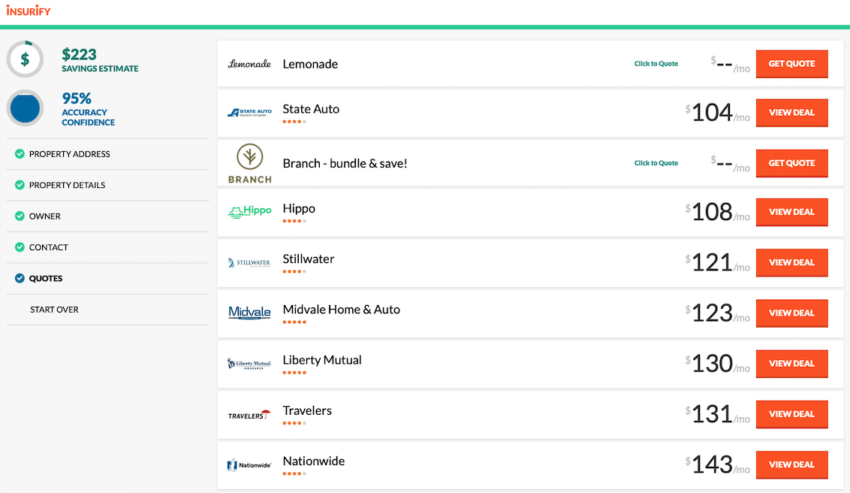Understanding the Importance of Comparing Insurance Rates
When it comes to managing your finances, one of the most important steps you can take is to compare insurance rates. Whether you’re shopping for auto, home, health, or life insurance, understanding your options can lead to significant savings and better coverage. Insurance rates can vary dramatically between providers, making comparison a crucial step in your decision-making process.
Insurance, unlike many other products, can have such a wide range of pricing based on numerous factors including location, the type of coverage, and individual circumstances. By taking the time to compare, you can find the best deal suited to your needs both financially and personally.
Yet, the act of comparing insurance rates is not merely about finding the lowest price. It’s also about ensuring you have adequate coverage. A cheaper rate might leave you underinsured, which can lead to hefty out-of-pocket expenses when you need your insurance the most. Let’s delve into how to effectively compare insurance rates to safeguard your finances and ensure comprehensive coverage.
What Affects Insurance Rates?
Before you start comparing insurance rates, it’s essential to understand the factors that can affect those rates. A variety of elements come into play regarding how insurers calculate premiums:
- Personal Information: Your age, gender, and marital status can impact rates, especially for auto insurance.
- Location: Where you live can affect home and auto insurance rates. Urban areas often face higher rates due to the increased risk of theft and accidents.
- Claims History: A history of frequent claims can raise your rates as insurers may view you as a higher risk.
- Coverage Types: The specific types of coverage you select can also influence rates. More comprehensive coverage typically comes with a heftier price tag.
- Deductibles: Higher deductibles can lead to lower premiums, but it’s important to ensure you can cover them if needed.
As you proceed to compare insurance rates, keep these factors in mind. They will not only affect your comparison but also help you understand why certain policies may appear more expensive than others.
How to Start Comparing Insurance Rates
Now that you know what influences insurance rates, let’s look at how to effectively compare them:
- Gather Personal Information: Before you start getting quotes, make sure you have the relevant information ready, including your driving record, home details, and any previous insurance policies.
- Use Online Comparison Tools: Websites like [Tauapa](https://en.tauapa.com/) allow you to input your information all at once and receive quotes from multiple insurers.
- Contact Insurers Directly: While automated comparison tools are useful, you may also want to chat with agents directly. This way, you can ask questions and clarify details.
- Review Coverage Options: It’s not just about the cost; consider the coverage offered. Ensure each quote provides similar types and amounts of coverage for an accurate comparison.
- Look for Discounts: Many insurance companies offer discounts for various reasons. This can include bundling policies, safe driving records, or even being a member of certain organizations.
Following these steps can make the process of comparing insurance rates smoother and more informative. The key is to ensure you analyze quotes in-depth so that you fully understand what you’re getting for your money.
The Role of Insurance Agents
While comparing insurance rates online is convenient, don’t underestimate the value of talking to a knowledgeable insurance agent. Agents can provide valuable insights into various policies and help you understand the nuances of different offerings. They can also help tailor your policy to fit your specific needs and budget.
Often, agents can access exclusive deals that may not be available through online comparison sites. Additionally, consulting an agent can help you understand bundles—like combining your home and auto insurance—which might save you more in the long run. It pays to have an expert on your side who deep dives into options specifically tailored for you.
However, remember not to solely rely on agents. Always do your research. Comparing rates online can give you a solid foundation of what you may expect before engaging an insurance agent.
What to Look for in Insurance Policies
When evaluating the results of your comparison, it’s not just about the overall cost. You must also take into account:
- Coverage Limits: Ensure that the coverage limits align with your needs. Adequate coverage may vary based on personal circumstances and the value of your assets.
- Exclusions: Read the fine print to ensure you know what is and isn’t covered. Some policies may exclude certain events or damages, which can be crucial when making claims.
- Claim Process: Look for companies with a good reputation for handling claims. Check online reviews to gauge customer satisfaction and response times.
- Financial Stability: Research the insurer’s financial strength. Ratings from agencies like A.M. Best can provide insight into their ability to pay claims.
Taking the time to assess these elements can prevent unpleasant surprises later on. Comparing insurance rates effectively involves being a savvy shopper to ensure that you’re getting not only competitive pricing but also quality coverage.
The Benefits of Regularly Comparing Insurance Rates
Even after you’ve found a policy that works for you, remember that it’s beneficial to revisit your insurance rates on a regular basis. Here’s why:
- Market Changes: The insurance market often changes, with new providers appearing and existing companies modifying their rates.
- Life Changes: Major life events—like marriage, moving, or developing a new hobby—can influence your insurance needs. These changes may come with opportunities for discounts.
- Discounts and Promotions: Seasonally, many insurance companies offer promotions to attract new customers—don’t miss out!
- Identify Better Coverage: Regularly comparing can help you find better policies that offer more comprehensive coverage at competitive rates.
Establish a routine, perhaps every year or every time your renewal notice comes up, to compare insurance rates. Continual learning keeps you informed and helps you maintain your financial health.
Conclusion: Stay Informed and Save
In conclusion, comparing insurance rates is not just a task for when you first enter the market; it’s an ongoing practice that can lead to significant savings and proper coverage over time. Attend to the details, understand your needs, and be proactive. By regularly assessing different policies and rates, you can ensure that you are always getting the best deal available while enjoying peace of mind.
With the right approach, comparing insurance rates can be both straightforward and beneficial, empowering you to make informed decisions that fit your lifestyle and budget.
Frequently Asked Questions
How often should I compare insurance rates?
It’s advisable to compare insurance rates at least once a year or whenever you’re approaching a policy renewal. Major life changes may also prompt an earlier review.
Can I compare insurance rates online?
Yes, numerous online tools allow you to input your details and receive quotes from multiple insurers, making it convenient to compare insurance rates efficiently.
Is it better to work with an agent or compare rates online?
Both options have their merits. Comparing online gives you a broad overview, while agents can provide personalized advice and access to exclusive deals. A combination of both is often beneficial.
What should I do if I find a cheaper policy?
If you find a cheaper policy that meets your coverage needs, consider switching providers. However, ensure that you understand the new policy’s terms and coverage thoroughly before making the change.
Will my rates change after comparing insurance rates?
Your rates may change if you switch providers. However, new rates depend on various factors, including your claims history, coverage limits, and discounts you may qualify for. Always check thoroughly before switching.




